A couple of weeks ago, Cuban entrepreneur Denisse Rondón started noticing a strange delay in the mechanism to receive the profits from the rental of her apartment in Havana, registered in the Booking tourist accommodation platform.
It was enough to investigate on the Internet to discover why the money did not reach her bank account. It had been discovered that the Argentine intermediary company that processes her payments was part of a money laundering and drug trafficking network.
The unforeseen event affects both Denisse and an unknown number of Cubans out of the approximately 1,000 owners of private accommodations in Cuba that are managed through Booking.
The income of those who used the services of SmileWallet for Booking clients’ virtual payments and bank transactions in dollars are in limbo.
“I only lost 400 dollars, but a lot of people have lost 2,000 or 3,000 dollars or more,” said Denisse.
Thousands of dollars in transfers remained in an inaccessible virtual space and nobody is offering Cubans a solution.
“In the middle of all this, we’re involved in a story of international trafficking, paying the consequences in such a delicate issue with which we have nothing to do,” lamented the Cuban entrepreneur.
The Cubans who could find a way to be in Booking did so despite the costly access to the Internet and other technological difficulties in Cuba. But apparently Booking did not respond with the same enthusiasm or were prepared for the singularities of the Cuban context, especially in the matter of payments.
Abandoned to their fate, disoriented, the Cuban victims of the scam are organizing in social forums and created an email (afectadosmilewallet@gmail.com) to share information.
Although they are not the only victims of this international scam, the exceptional characteristics of the conditions in which Cuban entrepreneurs compete in the virtual world, make them particularly vulnerable to this and other similar situations, with no apparent solution.
Operation Goldpharma
The scandal came to light in mid-March, based on a joint operation between the U.S. Drug Enforcement Agency (DEA) and the Federal Intelligence Agency (AFI) of Argentina. According to local sources from both countries, the director and founder of Smilewallet, Sergio Ferrari, created the company to be able to “move funds between different countries, through the use of money transfer mechanisms.”
Operation Goldpharma was carried out in the context of an opium crisis that has been affecting the United States for years and that generates millions of dollars in losses and lives.
Currently the illegal drug sales site is blocked if you try to buy from the United States.
 The investigation lasted a year and a half, until a triangulation was discovered between Argentina, Romania and the United States, the latter the main recipient of illegal drugs trafficked by the gang.
The investigation lasted a year and a half, until a triangulation was discovered between Argentina, Romania and the United States, the latter the main recipient of illegal drugs trafficked by the gang.
Illegal drugs were sold through websites with names such as goldpharma.com and distributed throughout the world.
The Public Information Officer of the DEA, Kenneth B. Gales, explained to OnCuba that Ferrari was arrested in Argentina and since it is an ongoing case, he cannot give much information about it.
Gales provided OnCuba with the official document with the charges of the other five accused in managing the drug trafficking operation from Argentina, and that they should be tried in the United States once they are extradited. Two of them fled and have not been located yet.
redacted-18cr175-superseding-indictment-certifiedThe platform used to launder the money from those operations, SmileWallet, recommended accumulating payments to reduce the total tax on the final transfer to the client’s bank account. This means that many people accumulated months of earnings in order to receive the most money.
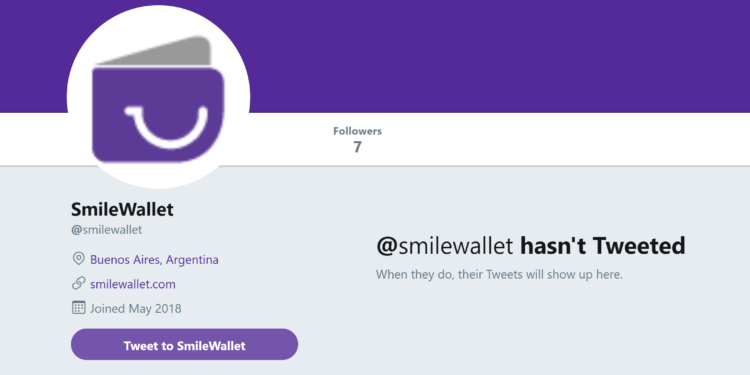
This process also coincided with the decline of tourism in Cuba, which is why more people did everything possible to publish their properties in all possible ways.
However, there is no clear protocol of what to do in these cases from the point of view of the victims, especially when the process involves several countries.
An affected person who preferred to remain anonymous provided OnCuba with an email sent by Smilewallet, just one day after the scandal broke out.

The message seems to indicate that once the problem is “solved” they will proceed to resume payments. However, the platform is still active and more people could fall into the trap of creating new accounts. Just this Thursday, March 28, a new account could still be created and activated on the website.
Booking.com loves Cuba?
Booking.com, a Dutch-based company with branches in more than 70 countries, began operations with Cuba in March 2016, more than a year after its main competitor, the Airbnb booking site.
At that time the first article dedicated to the island from Booking recommended a list of places to stay at, all of them joint or state ownership hotels, and aimed directly at the U.S. market, increasingly on the upswing.
“The company’s decision follows the recent relaxation of restrictions for American travelers to Cuba. The announcement means that Cuba will soon be able to be booked instantly for U.S. travelers that meet the criteria currently approved by the U.S. government to travel to Cuba,” the company said on its website.
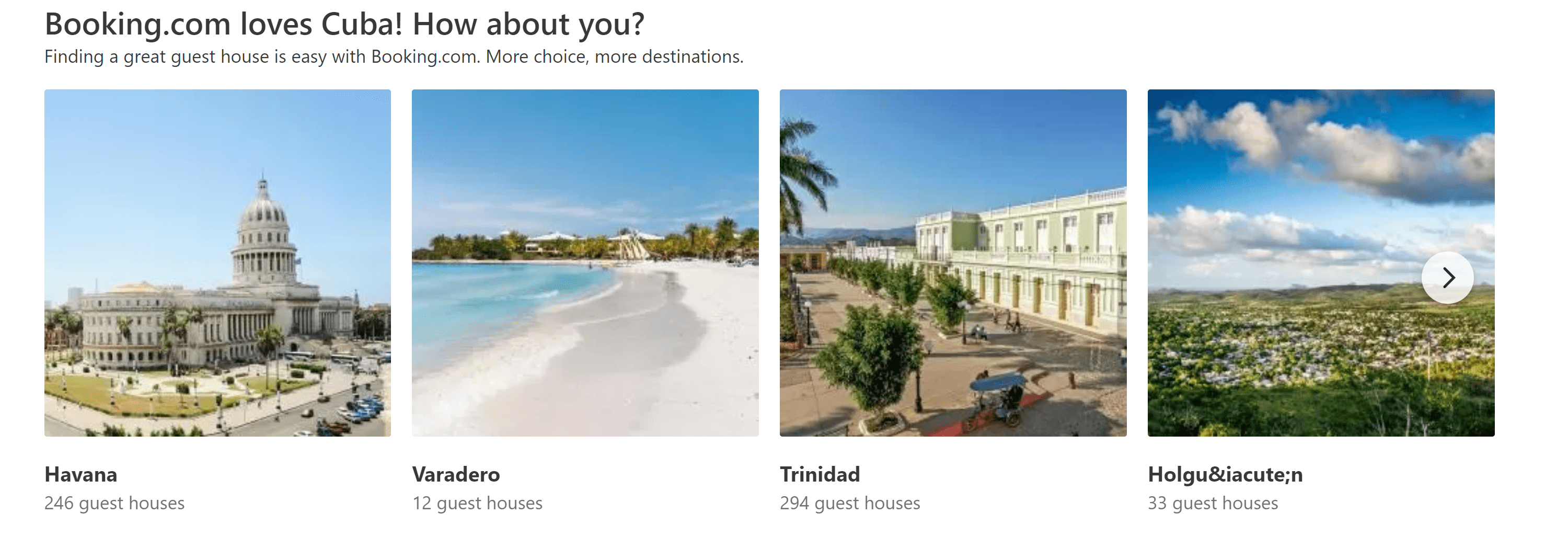
The opportunity for Cuban entrepreneurs came after and under difficult conditions due to the lack of Internet, and above all, the additional problems posed by the blockade restrictions, for example, in terms of how to process payments.
When owners receive a reservation through Booking, the site generates a virtual card in which it deposits the funds that were previously paid by the client. Those funds can only be received by the owner of the accommodation through a virtual payment terminal that deposits the funds in a bank account outside of Cuba.
But many of these terminals, such as SumUp or Stripe, do not work with Cuba due to the U.S. embargo restrictions. This is why several sites have emerged as an alternative, although they charge high commissions for capturing the funds of the virtual card and sending them to the bank account of the owners of hostels. One of them was precisely SmileWallet.
Unlike Booking, its Airbnb competitor can deposit the profits directly if an account is included abroad, which several owners use as an alternative through relatives, friends or themselves if they have a second residence in another country.
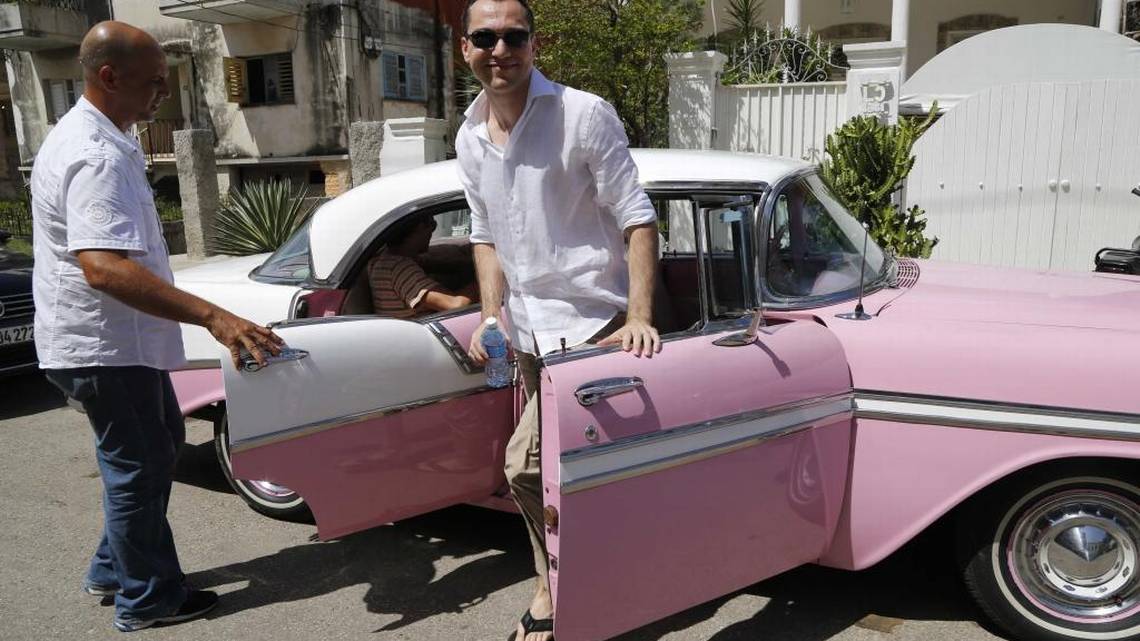
Another simple form of payment that Airbnb implements is the direct sending of money (already converted to CUC) through the VaCuba agency, which works with a network of people who distribute the cash house by house on the island.
Booking and other platforms like Expedia work differently and are limited to being intermediaries between the host and the client, but leave the burden of payments to the owners, managed through the aforementioned virtual cards.
“Then it’s the owners who have to fend for themselves to collect the money, within a two-month limit,” explains Denisse.
In the case of Denisse, as in that of other Cubans, it was Booking who recommended joining SmileWallet. After providing that platform with several personal documents and business references, the account could be opened, a form filled out with the coordinates of the credit card and the money could enter in around two weeks, subtracting a commission of 15 percent.
Denisse comments that the payment was effective at the beginning, “although extremely slow and with high commissions.”
“At the beginning you wrote and they answered, even on weekends. It was just over 15 days ago that the problems began,” she said.
Alfonso Guía, another of those affected, explains that there is a second form of payment that SmileWallet used, through UnionPay, a Chinese subsidiary that issues credit and debit cards that can be used anywhere in the world, including Cuba.
Since the irregularities began and until the scam was discovered, several hostel owners have tried to communicate with both SmileWallet and Booking.com with no results.
“Booking, which charges very high percentages for each reservation made from its site, washes its hands with the Smilewallet issue. I went around the world on the phone with their Customer Service, as they passed me through offices in Mexico, Spain, France and the United States. The answer is simple and impersonal and I have received it four times already,” Denisse said.
OnCuba tried for several days to contact Booking.com through email and phone calls, unsuccessfully. Until the publication of this article, we have not received any answer from its representatives and public relations executives in the United States.
Playing in the jungle with zoo rules
In Cuba, the reservation system in private homes works under a monthly tax payment regulation, as well as the declaration of each room occupied during the month. The owners must report names, surnames and documentation and country of origin of the tenants they receive in their rooms and the number of days occupied.
In this case, the victims of the SmileWallet scam had to report the clients, but the question that hangs over this and that the entrepreneurs should consult with the local authorities is whether they should pay taxes for money they never really came into.
Willing to advertise their businesses in as many ways as possible, the owners of hostels usually enter into informal advertising networks and “travel agencies” to which they give a small commission for each room they rent.
Coupled with the difficult access to the Internet, many rental owners also hire the services of other intermediaries who promise to manage their accounts on Airbnb, Booking.com and other booking sites.
This prevents having real control over the prices of the rooms and includes a chain of intermediaries that distances the client from the owner in the transaction.
For example, a tourist booking through Booking, which in turn refers to a virtual payment platform, which deposits the money in the hostel’s account managed by a third intermediary who will take a final part to the owner of the property. Up to half the original price could stay along the way, which increases costs for the client and limits the income for the owner.
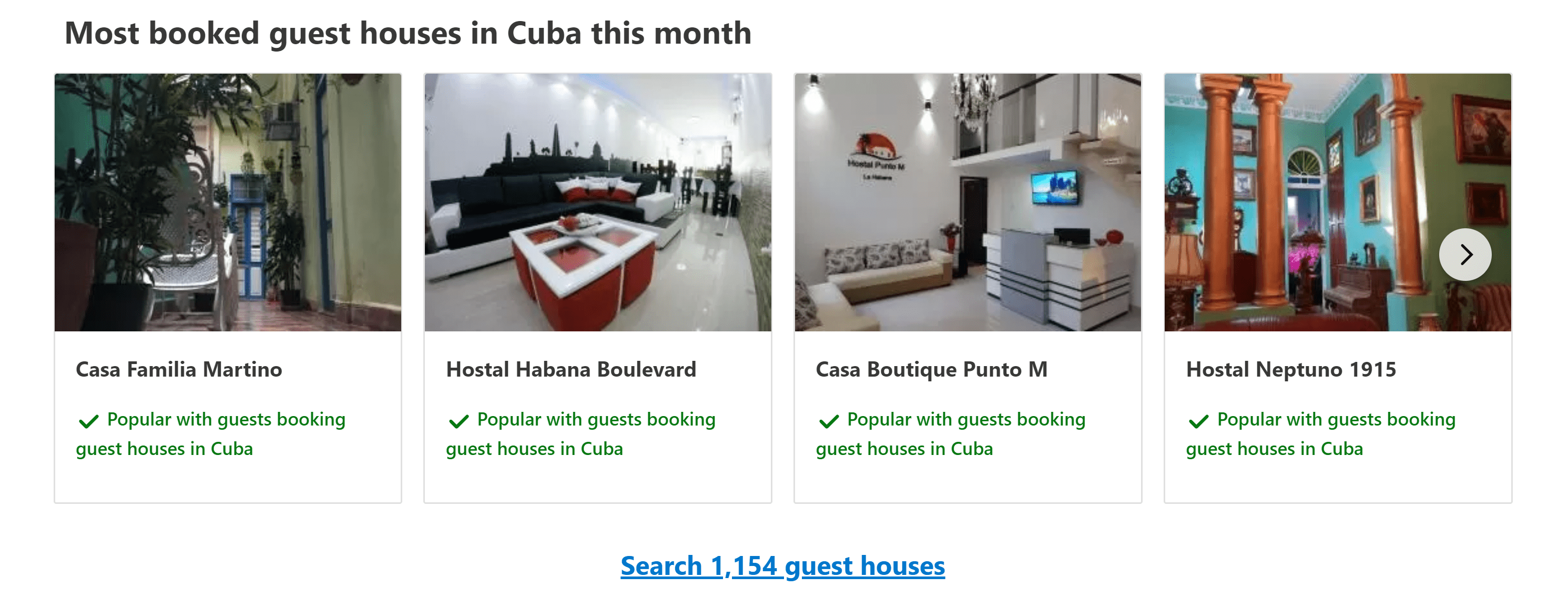
On the other hand, there are Cubans who live abroad and have properties on the island that they rent to tourists. In this case they would have other opportunities to manage the accounts, but in Booking this is not an option, nor in most of the U.S. payment platforms.
Mentioning the word “Cuba” is almost always synonymous with “the transaction is forbidden.”
“Here Cubans pay the consequences of that isolation, of that technological helplessness, of wanting to play in the jungle with the same rules of the zoo,” said Denisse.
What can finally happen to those affected in this particular case? What are the protocols to follow when a considerable number of Cubans are scammed from other countries?
“I don’t know how all this is going to end up or what to do. To complain in our office of the ONAT? In the Ministry of Labor of Cuba? Making a report to the police for fraud? Going to the embassy of Argentina and denouncing the situation?” Denisse said frustrated.
Meanwhile, the U.S. authorities in charge of the case declined to comment on the possible actions that victims of money laundering can take. The extraterritoriality of the matter complicates things even more.
The case that the DEA is handling refers exclusively to drug trafficking and not to money laundering itself.
Several private home owners have commented on open forums such as the one on TripAdvisor that they will eliminate their profile from the Booking platform, although others simply ask about other virtual payment alternatives and insist on keeping that option open.
In 2017 a user who signs as Alberto S. complained from Spain about the limitations to collect the bookings: “We have to make force all together with Booking.”
That post was retaken as a result of what happened with SmileWallet and users warn each other.
“If Booking cannot guarantee us a safe and direct payment, then I decline its proposal. It is not us who have to adapt to Booking, but the other way around,” said Denisse.
“We do not work for Booking, it’s rather the reverse of how the contract works,” she concluded.

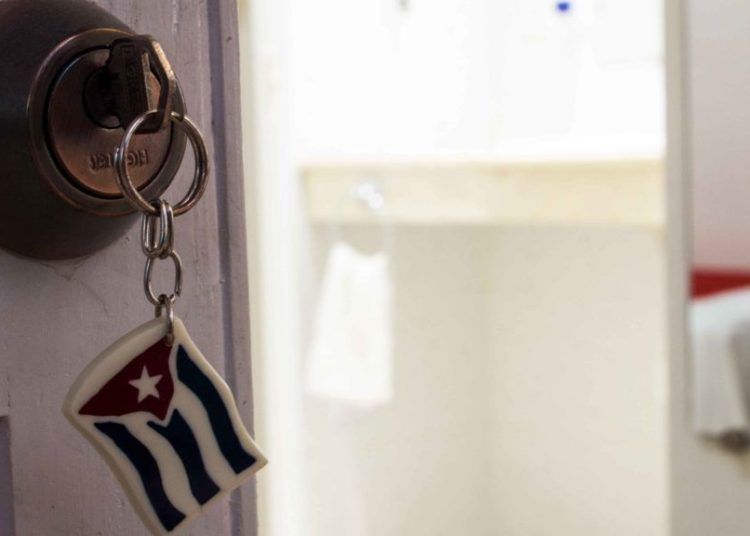






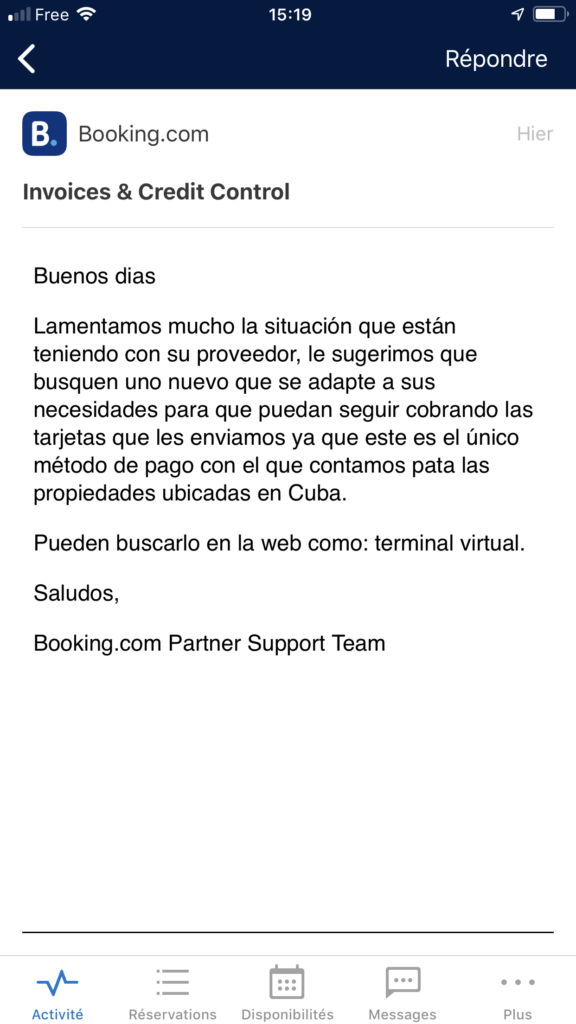





Yo tuve un grave problema con Booking. porque perdi todo el mes de Diciembre que pase desde Cuba a SW pero luego me di cuenta que no había recibido los correos que regularmente me mandaba SW cada vez que hago un deposito. Entonces escribí a Nicolás PIN y el me dijo que ahi no parecía nada .
Decidí, a comunicarme con Booking y todo fue evasivas y respuestas estupidas. En este proceso estuve desde finales de Marzo hasta principios de Junio, ya las tarjetas comenzaron a Expirar y me di cuenta que todas las evasivas eran precisamente, porque estaban esperando a que llegara el vencimiento de las tarjetas Al final he perdido todo este dinero y estoy segura que está en manos de los agentes de Booking-México que atiende a Cuba. Al final decidí dejarlo, porque me subia la presion y la vida es mas importante que todo lo demas.
Pero aun tengo dinero en SW. Y conozco a 3 amigos mas que tienen aún dinero en SW
Esta fue última carta que le escribi a Nicolas el el dia Jue 09/05/2019 02:39 PM
Estimado Nicolás estoy ahora mismo en este proceso, luego de haber pedido ayuda en innumerables, ocasiones, ellos han dicho que no tienen la culpa de lo sucedido con Smile Wallet. Entonces donde está el dinero?? Yo después de buscar en todos los registros. LLegue al convencimiento que todo el dinero esta en manos de Booking.
Ya he escrito varias veces a Nicolas pero no responde esta fue la ultima carta que le envie acerca del problema de Booking.
Nicolas Pin
Jue 09/05/2019 03:47 PM
Perfecto. Déjeme saber tan pronto tenga una respuesta.
Lo que ha sucedido no tiene nada que ver con que las transacciones que menciona. Incluso hasta el día 14 de Marzo todos los clientes continuaron operando y las operaciones figuran en el sistema.
Si las procesó con nosotros, debería haber recibido los emails de confirmación o podría ver las mismas en su cuenta de SmileWallet. Si tiene algún correo, le pido me lo envíe para revisar.
Saludos,
Nicolás
Luego de esto le he escrito varias solicitando el depósito del dinero que me queda en SW pero no ha contestado mas. Me luce que se quiere quedarse con todo el dinero.
Y ahora que hago, ya he hablado con los otros amigos y estamos en lo mismo, pero no sabemos que debemos hacer.